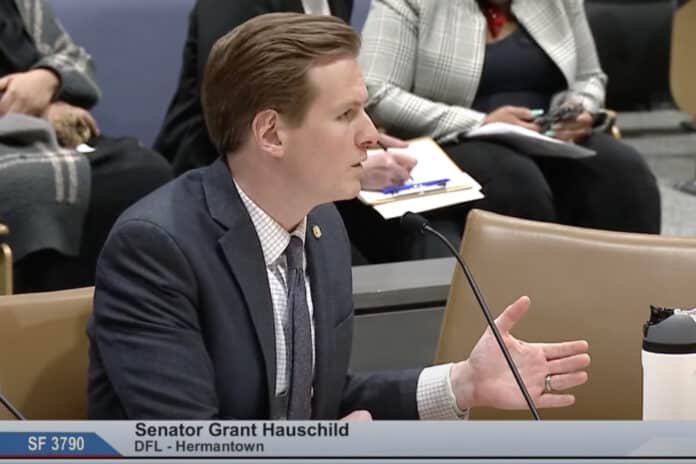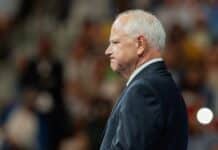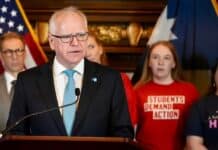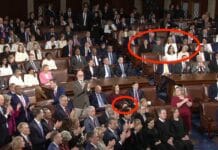
A tandem of DFL lawmakers continued this week to push their bill aiming to subsidize daycare expenses for “middle class” families, even as a price tag continues to be missing from the legislation.
On Monday, the Senate Education Policy Committee advanced SF3790, which sponsors are calling the “Great Start Affordability Act,” that would make subsidies (in the form of monthly installments) available for households with infants, toddlers or preschoolers that make between just under $60,000 and about $174,000 annually. The amount of those installments would be scaled up or down based on income level, yet to be determined by the Minnesota Department of Education, bill authors have said.
The Senate Education Policy Committee — made up of six Democrats and four Republicans — heard from a handful of testifiers on the bill and then voted unanimously to move it forward to its next stop, the Senate Education Finance Committee. The committee’s endorsement came despite questions about why the legislation contains blank lines where dollar amount allocations for the proposed program should be.
Sen. Grant Hauschild, DFL-Hermantown, is partnering with Rep. Carlie Kotyza-Witthuhn, DFL-Eden Prairie, as chief sponsors of the bill in the House and the Senate. They held a press conference at the Capitol Monday to continue to rally support for their proposal. The bill received a hearing in a House committee last week, but no vote was taken, partly due to the fact it has no price tag.
“Our goal is to ensure that we can get the most help to the most amount of families, but when we look at the folks who are needing the most help, it does fall right around that $60,000 a year mark, simply because they are just on the other side of this cliff, so of course we would try to prioritize relief and support to the families who are on the lower end of that earning spectrum,” Kotyza-Witthuhn told members of the media.
During the Senate committee hearing Tuesday, Sen. Zack Duckworth, R-Lakeville, asked Hauschild why he has yet to commit to a dollar amount for the program. Back in December, Hauschild and Kotyza-Witthuhn said they believed the program could cost as much as $500 million to taxpayers.
“The great thing about this program is that it’s scalable,” Hauschild said, adding that the Department of Human Services has recommended that families should pay no more than 7 percent of their monthly income toward daycare. That recommendation came from a 2021 legislatively created task force, most of whose members were appointed by Gov. Tim Walz.
Budget forecast may influence proposal
“In order to reach that, we would be talking about a substantial amount of money, which is why it is blank (in the bill language),” Hauschild told his Senate colleagues on Monday. “We will see what the (February budget) forecast says, we will see what the appetite is for possibly moving this forward. But, you know, the great thing about it is if we are given an allocation of money we can sort of scale it to make an impact for the families that need it.”
The Minnesota Office of Management and Budget is expected to provide its February budget forecast on Thursday.
Duckworth, who mentioned he grew up with a mother who ran an in-home child care, told Hauschild he appreciates the conversation the legislation has started for generating solutions to stem the tide of increasingly unaffordable child care costs.
“We need to look at this through multiple different perspectives,” Duckworth said. “Whether it’s a grant or whether it’s giving tax credits to folks who are spending exorbitant amounts of money on child care. And also from a regulation standpoint — how can we make it more affordable to run child care centers.”
Hank Long
Hank Long is a journalism and communications professional whose writing career includes coverage of the Minnesota legislature, city and county governments and the commercial real estate industry. Hank received his undergraduate degree at the University of Minnesota, where he studied journalism, and his law degree at the University of St. Thomas. The Minnesota native lives in the Twin Cities with his wife and four children. His dream is to be around when the Vikings win the Super Bowl.










